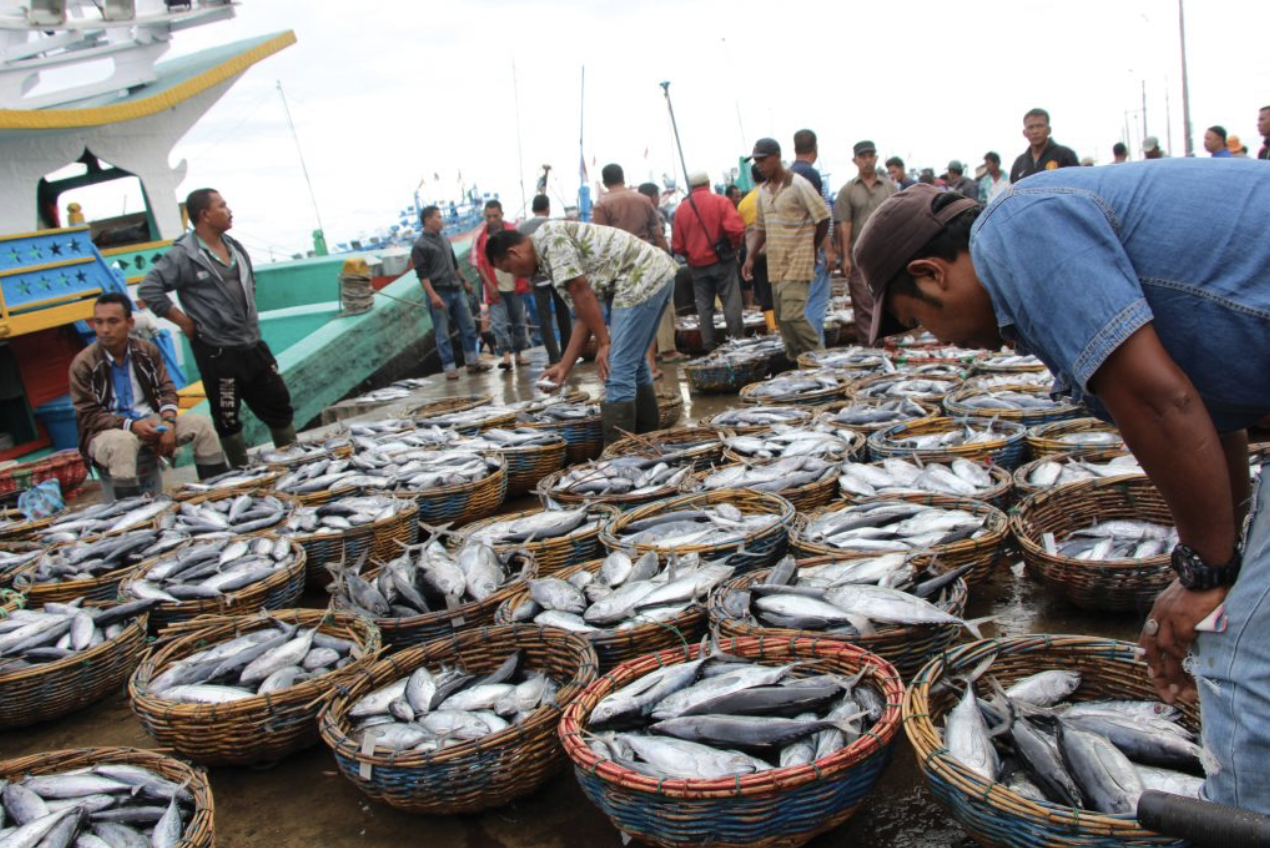OLIVIA AMEZCUA WRITES– Fisheries, or rather the poor management of fisheries, has generated a multitude of problems, ranging from environmental to economic to health. For Indonesia, a coastal country heavily reliant on the fishing industry, this issue must be addressed with urgency.
Among the adverse effects of poorly managed fisheries: danger to the delicate ecosystem, eventual endangerment of various species, an insufficient food supply, health concerns related to the consumption of unsafe fish, and steep economic loss.
In fact, it has recently been reported that pacific tuna stocks will face a significant decline by 2050 due to global warming caused by greenhouse gas emissions, which underscores the need for improved management. The WWF (World Wide Fund for Nature) has highlighted the fishing industry’s key problems: inadequate regulations, insufficient implementation/enforcement, lack of transparency and traceability, failure to follow scientific advice, and too few fishing areas declared off-limits.
Unfortunately, fisheries activists argue that the two presidential candidates have not demonstrated much effort to this problem and have in no way empowered local fishermen.
True, Joko Widodo, the current president of Indonesia who is running for re-election, has established some policies tackling illegal, unregulated, and unreported (IUU) fishing – sinking almost 500 vessels since 2014. Still, Widodo has also shared plans to turn Indonesia into a “global maritime fulcrum,” which will come at the cost of exploiting offshore oil deposits.
Prabowo Subianto, a presidential contender, is generally considered to share Widodo’s views. Their views have been termed “resource nationalism”— meaning, governments seeking stringent control over the country’s natural resources due to the risk of expropriation.
Moreover, fisheries activists point to an overall lack of communication on policies that could substantially improve the sustainability for Indonesia’s fisheries. Representatives of Greenpeace Indonesia bemoan the lack of an identifiable plan to fight marine pollution or protect ecosystems.
There is hope, however, if activists continue to speak out—note the growing demand for seafood with an ecolabel— a voluntary labeling system certifying sustainable, environmentally sound practices in the fishing grounds might come into play.  One Indonesian tuna fishery has already been certified by the Marine Stewardship Council (MSC), and it is reported that at least a dozen more are in the process of becoming certified. NGOs are also helping fisheries seek certification by putting pressure on governments to assist these fisheries so as to meet and maintain the requirements for sustainable fishing certification.
One Indonesian tuna fishery has already been certified by the Marine Stewardship Council (MSC), and it is reported that at least a dozen more are in the process of becoming certified. NGOs are also helping fisheries seek certification by putting pressure on governments to assist these fisheries so as to meet and maintain the requirements for sustainable fishing certification.
This is especially difficult, however, for Indonesia’s small-scale fisheries, due to insufficient resources and funds. .
Not until the government empowers fishing communities, protects coastal communities from climate change-related impacts, and resolves land conflicts from coastal development projects can meaningful change happen.
And lastly, if you’re a person who likes numbers, look below to see the true magnitude of the problem and the need for a reasonably quick solution.



